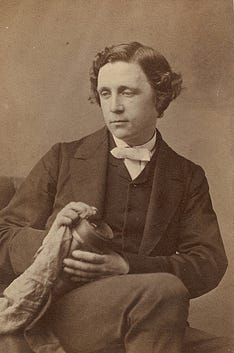|
 |
"Don't Look Back" by Kay Ryan, from Say Uncle. © Grove Press, 2000.
ORIGINAL TEXT AND AUDIO - 2012
It's the birthday of Wolfgang Amadeus Mozart, born in Salzburg, Austria (1756). He only lived for 35 years but he started his career early — a child prodigy from a family of musicians. He toured all over Europe, and wrote his first opera at age 11.
Mozart died at the age of 35 in mysterious circumstances. There is a popular image of him as poor and miserable, working on a funeral requiem as he was dying. But overall, his final year was a good and productive one. He was living in Vienna. He was still getting commissions. He didn't have a lot of money in the year 1791, but then again, he rarely did — he and his wife, Constanze, never seemed able to live on what Mozart made.
It was a busy year. In the first months of 1791, he wrote dance music for the winter balls at the court and the Piano Concerto No. 27. In the summer, a messenger came, asking Mozart to write a requiem for his patron, Count Franz von Walsegg who had lost his wife and wanted to commission a requiem in her honor.
He was working on the opera La Clemenza di Tito to celebrate the coronation of Emperor Leopold as King of Bohemia. It premiered in early September. Three weeks later, his opera The Magic Flute opened in Vienna, and was a big hit. In October, he finished Clarinet Concerto in A. Then a cantata for his Freemason lodge, which he directed himself on November 18th. Finally, he put all his energy toward the Requiem, but just after the performance of his cantata, he became extremely ill. He had a fever, and his whole body was swollen. He continued writing the Requiem right up until his death, which was only two weeks after he became sick. No one knows what Mozart's illness was, and there are dozens of theories: rheumatic fever, tuberculosis, endocarditis, syphilis, congestive heart failure, kidney disease, and poisoning. He died on December 5th, 1791 and was buried in a mass, unmarked grave, a common practice for the middle-class of Vienna.
Mozart said, "Music, in even the most terrible situations, must never offend the ear but always remain a source of pleasure."
It's the birthday of the writer whom Mark Twain called "the stillest and shyest full-grown man I have ever met." That's Lewis Carroll, born Charles Lutwidge Dodgson in Daresbury, England (1832). He went to Oxford, was gifted at math, graduated with honors, and stayed at the college as a teacher for the rest of his life. He didn't really like teaching. But it earned him a living, and he thought of it as a temporary endeavor while he worked on becoming famous as an artist of some sort. Carroll wrote poems and short stories, and took photographs, and then one day in 1856, he took three little girls, Ina, Edith, and Alice on a boating trip down the river, and told them the story that became Alice's Adventures in Wonderland (1865). Six years later, he published its sequel, Through the Looking-Glass and What Alice Found There (1871).
Be well, do good work, and keep in touch.®
BROWSE THROUGH KAY RYAN POETRY COLLECTIONS - CLICK HERE
You’re a free subscriber to The Writer's Almanac with Garrison Keillor. Your financial support is used to maintain these newsletters, websites, and archive. Support can be made through our garrisonkeillor.com store, by check to Prairie Home Productions P.O. Box 2090, Minneapolis, MN 55402, or by clicking the SUBSCRIBE button. This financial support is not tax deductible.

